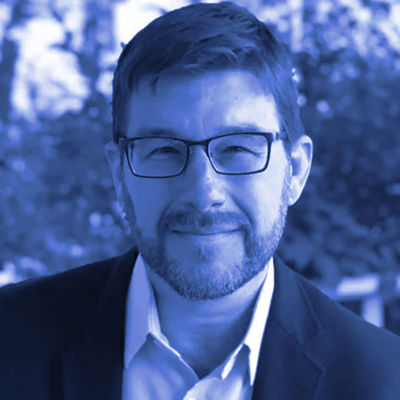Ep 114: Jarret Adams - Founder, Full On Communications



Show notes
1 - Path to the Nuclear Energy Institute
Bret Kugelmass: Tell us about your background.
Jarret Adams: After college, Jarret Adams went to journalism school and started off his career as a business journalist, covering sectors like aerospace, defense, chemicals, and power. He wanted to make a living through writing and thought business journal provided a way to dig in deeper than general news and work internationally. Adams wrote about topics such as mergers, acquisitions, and new products. He would do background research, conduct interviews, maybe talk to an investment analyst, and use all the information to put a story together. Different industries operate similarly, but each industry has its own unique culture. There is an art to writing and there are tools that allow it to seem more seamless and do it more quickly. Adams spent ten years as a business journalist as the media landscape changed. Daily newspapers were disappearing and turning to online media and social media was introduced. While Adams was working for a tech business magazine in London in 2002, he got laid off and followed an ad to the Nuclear Energy Institute (NEI). The original nuclear renaissance was happening and in 2005 the Energy Policy Act promoted some key policy measures for nuclear. The loan guarantee and production tax credits helped launch Vogtle and Summer.
2 - Communications in the Nuclear Industry
Bret Kugelmass: What were some of your first jobs at the Nuclear Energy Institute (NEI)?
Jarret Adams: Jarret Adams’ early roles at the Nuclear Energy Institute (NEI) were focused on writing. He wrote NEI’s newsletter, “The Nuclear Energy Overview”, the longer form “Nuclear Policy Review”, and various speeches. Adams learned all about the nuclear industry and found it really fascinating. The audience for these NEI publications were the industry and NEI members, who were interested in updates, analyses, and the position of the nuclear industry. NEI has recently opened up the information from members-only to available to everyone. Last year, Areva split into Framatome and Orano. Framatome does fuel fabrication, reactor construction and services. Orano does mining, enrichment, and decommissioning. Jarret Adams worked for Areva in communications and media relations in the U.S. and Canada, where Areva’s largest business activity is uranium mining. Areva had some renewables at the time, but was focused on a pro-nuclear message. Even renewable energy advocates recognize that going for a hundred percent renewables may not be the smartest way to go. It is still good to have a portfolio of energy technologies. Nuclear energy is carbon free, can be used 24/7, is reliable and energy dense, and can do a tremendous amount of energy in a small area. There are still other exigencies which may need a different energy source. Adams has been exposed to all aspects of the entire fuel cycle and the entire nuclear industry through his roles in communications.
3 - Challenges and Benefits of Nuclear Advocacy
Bret Kugelmass: Does the variety of units used in nuclear energy provide unique communication challenges?
Jarret Adams: The nuclear industry uses different units for measurements at different phases of the nuclear cycle. The job of communications roles is to try to explain these measurements to the general public and to convert those things into meaningful information for people. Jarret Adams left Areva in 2014 and spent some time in the UAE. During his time away from nuclear, Adams had an epiphany that, if nuclear had placed a higher priority on its communications and public relations strategies, the industry would be in a different place. Nuclear needs to change some of its messengers by bringing younger, more diverse, and more fresh perspectives. Stories can be told through different media, which is a tactical decision, but the communications need to a part of the core function. Having a consistent brand message across different audiences is important, and your company’s brand should be recognizable. Building the Vogtle plant is tremendously important for America’s future, not just because America needs to demonstrate that they can build a new nuclear plant, but the U.S. needs to retain its ability to do big nuclear projects. The communities around nuclear facilities are extremely supportive and understand the technology. Jobs and economic impact is a core message for stories in the community, but the challenge is getting the stories about nuclear’s importance to places where there aren’t nuclear plants. Unless a wider array of the public is convinced about nuclear, the industry will not succeed because the public has a greater ability to influence where things go.
4 - International Nuclear Growth
Bret Kugelmass: How do we reconcile an industry that wants to grow with an overall decreasing energy demand?
Jarret Adams: The U.S. has slow economic growth, but there is a lot of potential for growth internationally. New projects, like renewables, are still being built in the U.S. because the market is demanding it over other technologies. Nuclear needs to be in a situation in which it is considered a viable solution. Jarret Adams has done some work with the International Atomic Energy Agency (IAEA) talking to newcomer countries who are interested in doing nuclear energy and providing some of the U.S. experiences. When new nuclear is being built, stakeholder outreach is one of the first things that needs to be done. Full On Communications’ role with the IAEA is counseling their representatives, such as the minister of energy or the utility, so they can go out and explain nuclear through town halls, articles in the local newspapers, or interviews on television. Different communication settings are more comfortable in different cultural situations. Nuclear energy is one of the most important technologies for meeting energy needs while fighting climate change. To meet its potential, people must want the technology and there must be a higher priority placed on doing the marketing, public relations, and communications work to recognize nuclear’s great assets.
